Animal recognition Extra Challenge Worksheets for Ages 4-9
8 filtered results
-
From - To
Discover our Animal Recognition Extra Challenge Worksheets for kids aged 4-9, designed to enhance their understanding of wildlife through engaging activities. Perfect for aspiring zoologists, these worksheets promote observational skills, vocabulary development, and critical thinking as children identify various animals, their habitats, and characteristics. Offering a mix of fun challenges—from matching animals to tracing their silhouettes—these worksheets will keep young learners interested and motivated. Ideal for classroom use or at-home learning, they're a delightful way to enrich your child's learning journey while nurturing their curiosity about the animal kingdom. Download now and inspire a love for nature today!
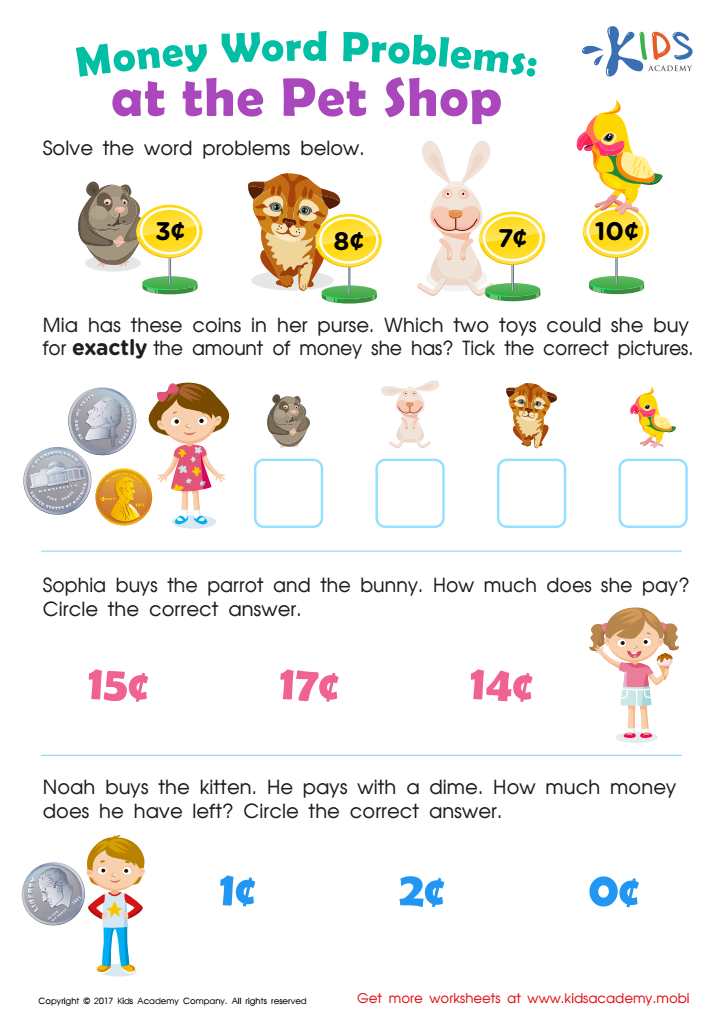

Pet Shop Worksheet
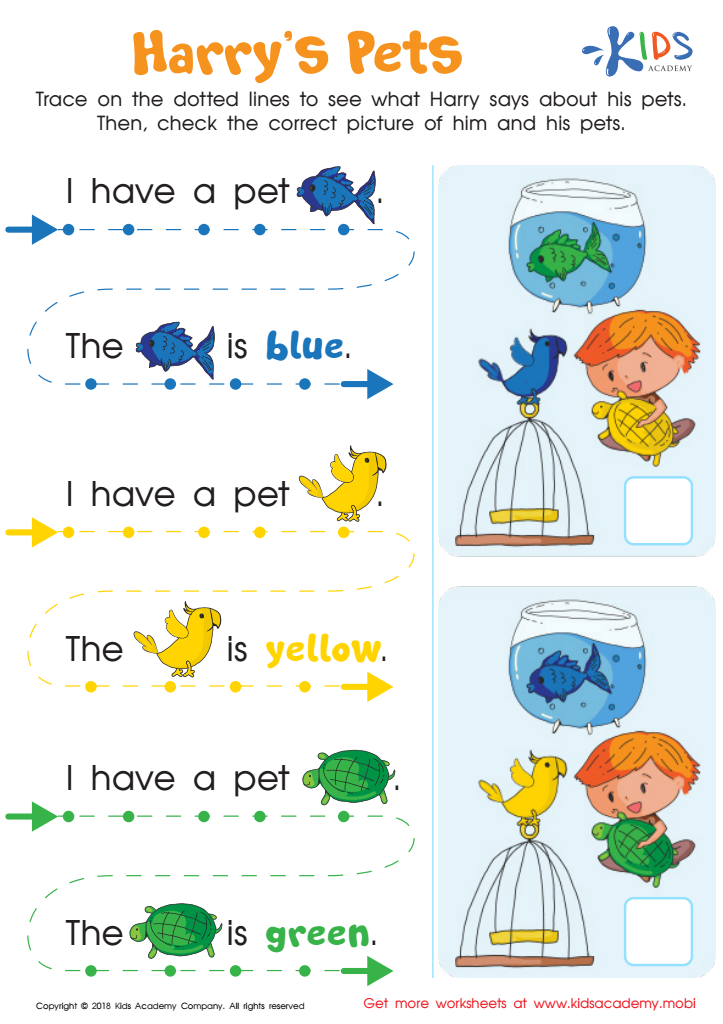

Read from Left to Right: Harry's Pets Worksheet
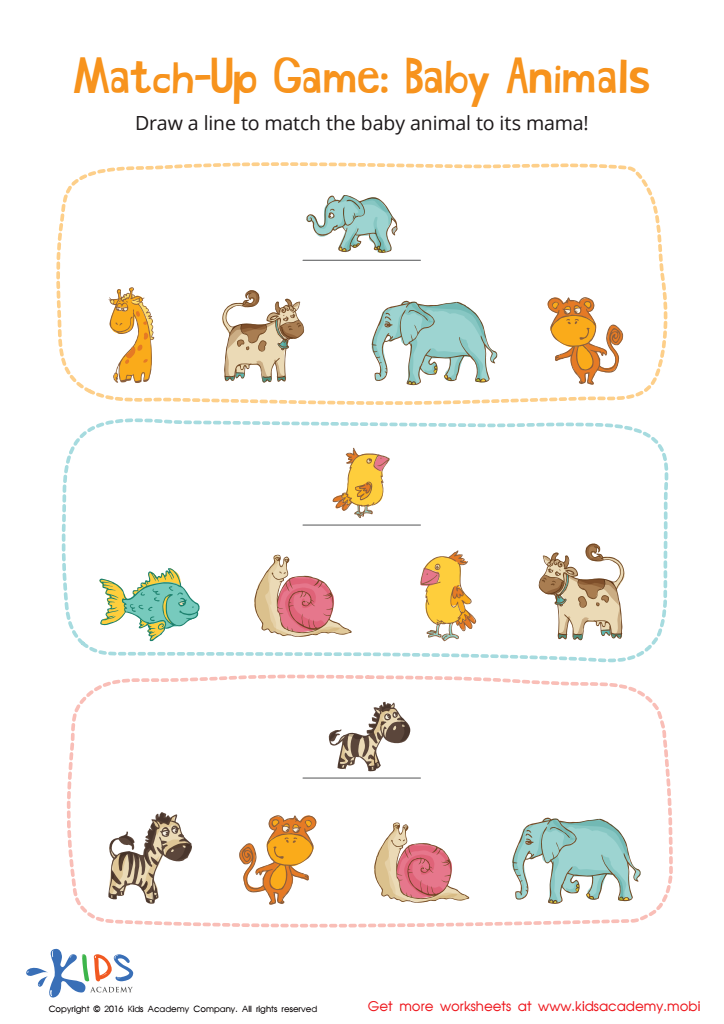

Baby Animals Match-Up Worksheet
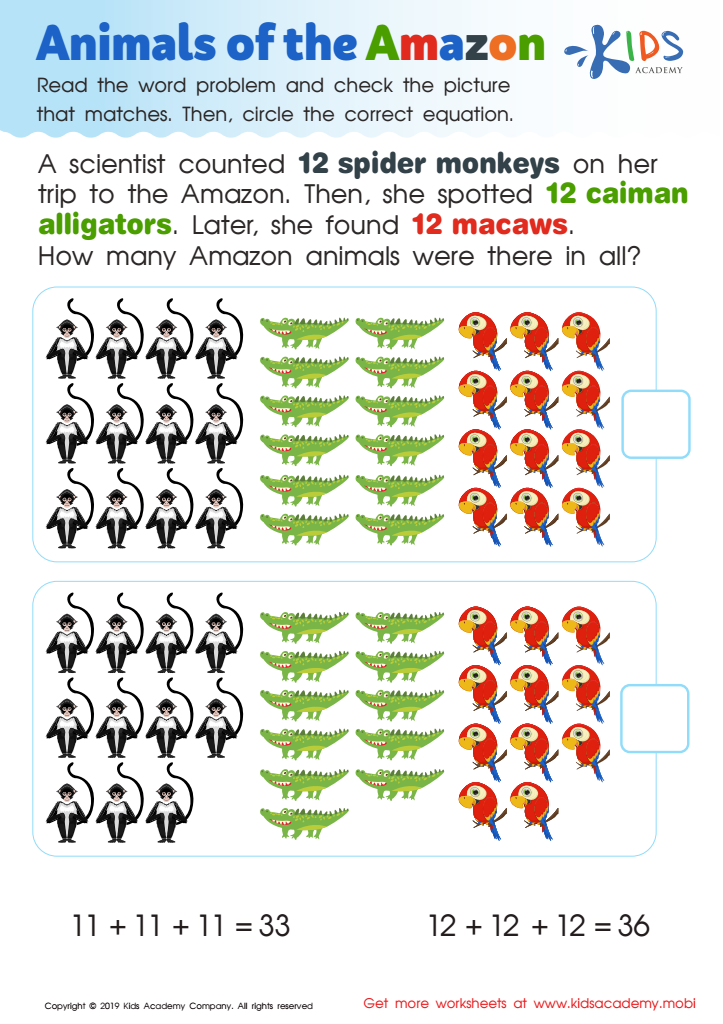

Animals of Amazon Worksheet
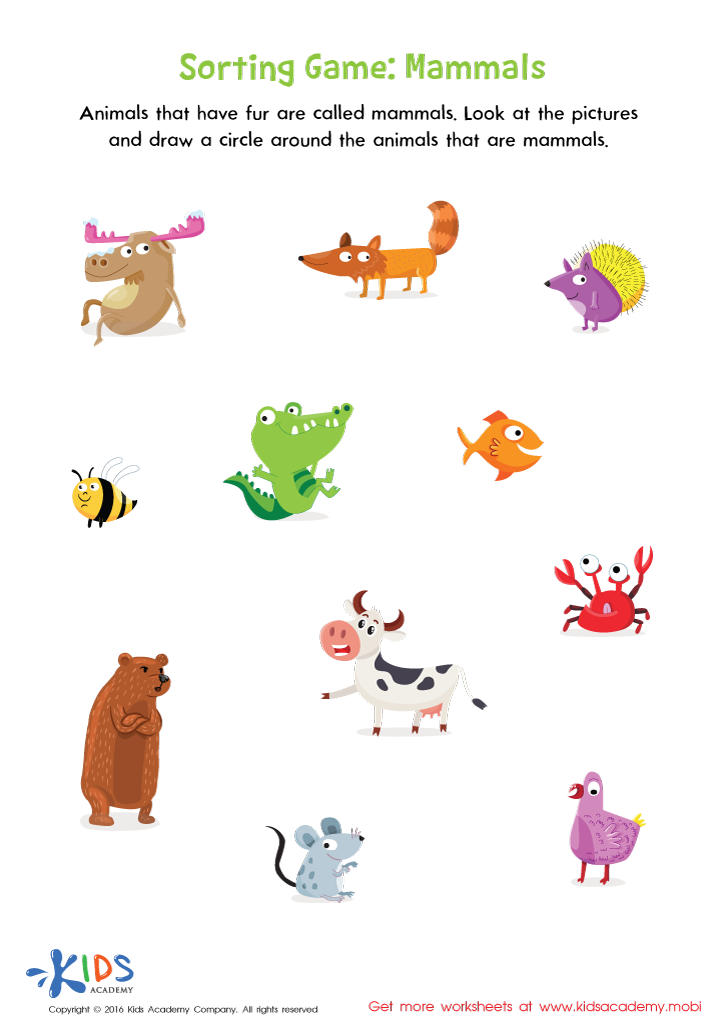

Mammals Sorting Worksheet
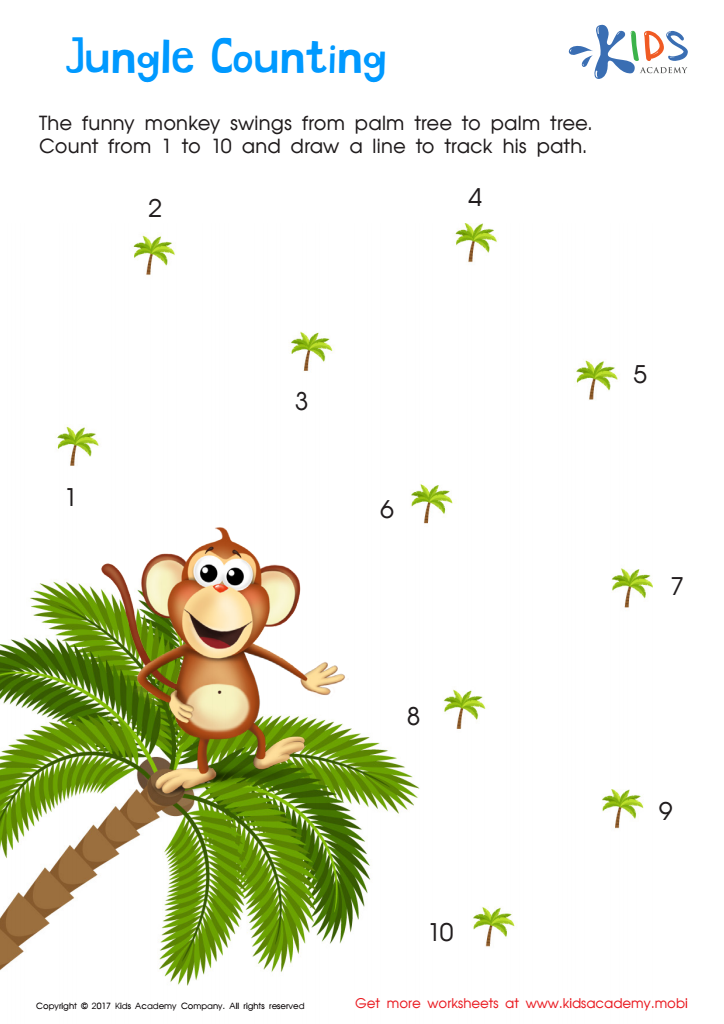

Jungle Counting Connect Dots Worksheet
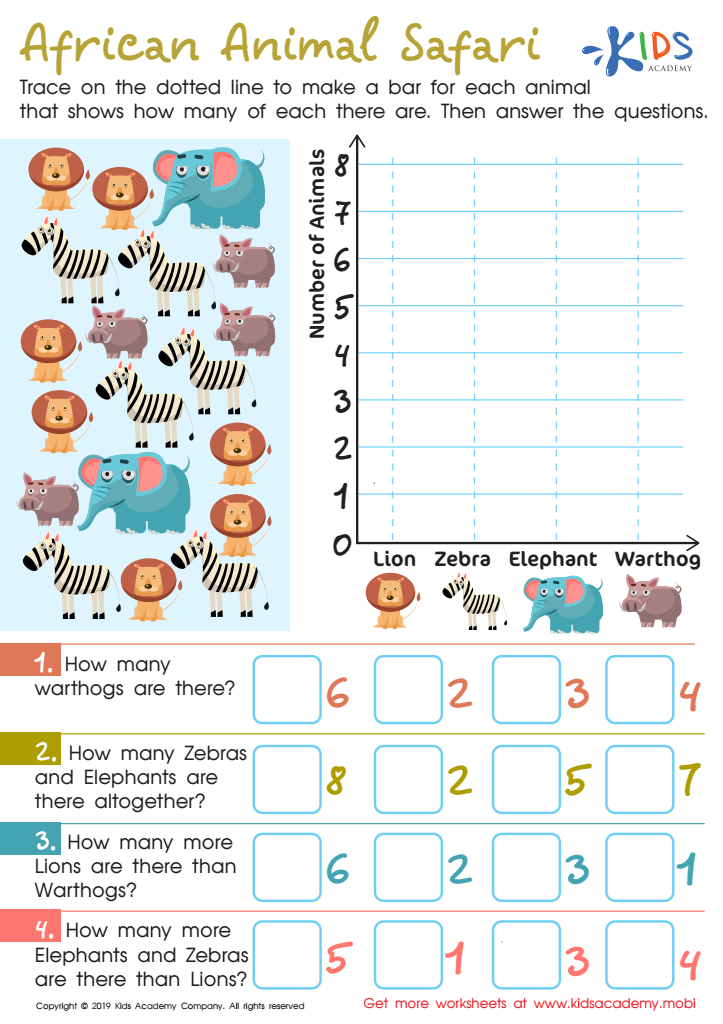

African Animal Safari Worksheet
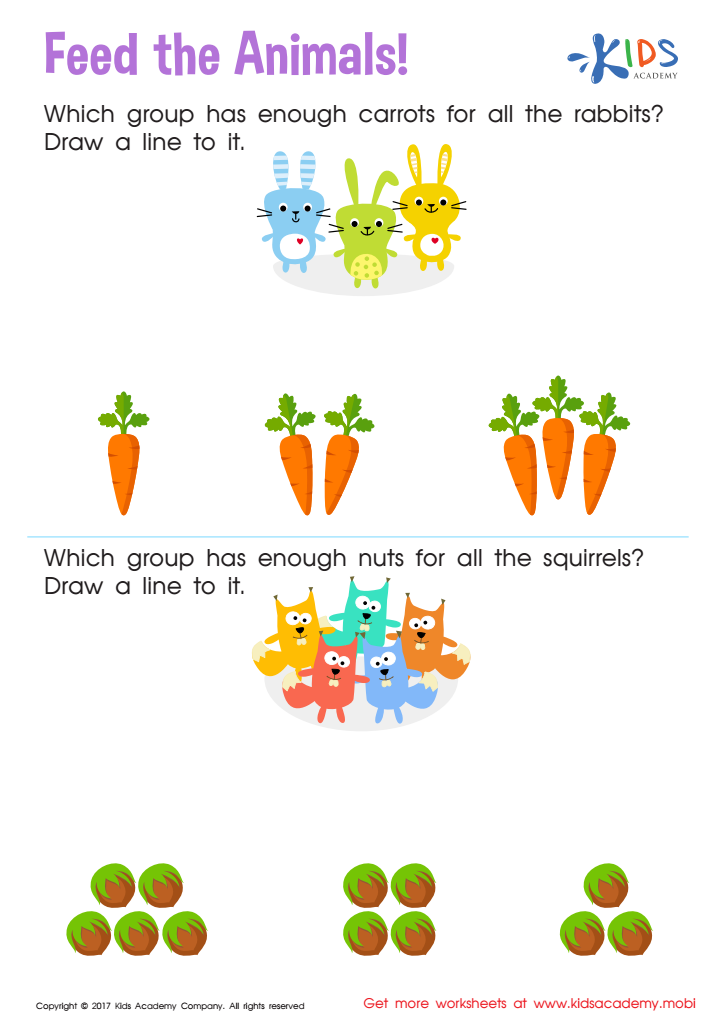

Count and Match: Feed the Animals Worksheet
Animal recognition is a vital skill for children aged 4-9, and both parents and teachers play an essential role in fostering this awareness. Firstly, recognizing different animals enhances children's cognitive development. It expands their vocabulary, supports memory retention, and strengthens observational skills, allowing them to categorize and classify the world around them.
Moreover, animal recognition nurtures empathy and compassion. Teaching children about various animals, their habitats, behaviors, and needs encourages a sense of responsibility towards living beings. This is particularly significant as it promotes an understanding of biodiversity and the importance of protecting the environment.
Engaging in animal recognition activities can also stimulate children’s curiosity and imagination. Through exploring animals, children learn to ask questions, engage in discussions, and express their thoughts creatively, thereby improving language and critical thinking skills.
Additionally, animal recognition can serve as a wonderful bonding experience between parents and children or teachers and students. Activities such as outings to zoos, nature parks, or simply reading books about animals can create shared memories that enhance relationships and communication.
In summary, animal recognition is not just an educational tool; it fosters emotional intelligence, critical thinking, and a lifelong appreciation for nature, making it a valuable challenge for young learners.
 Assign to My Students
Assign to My Students
















